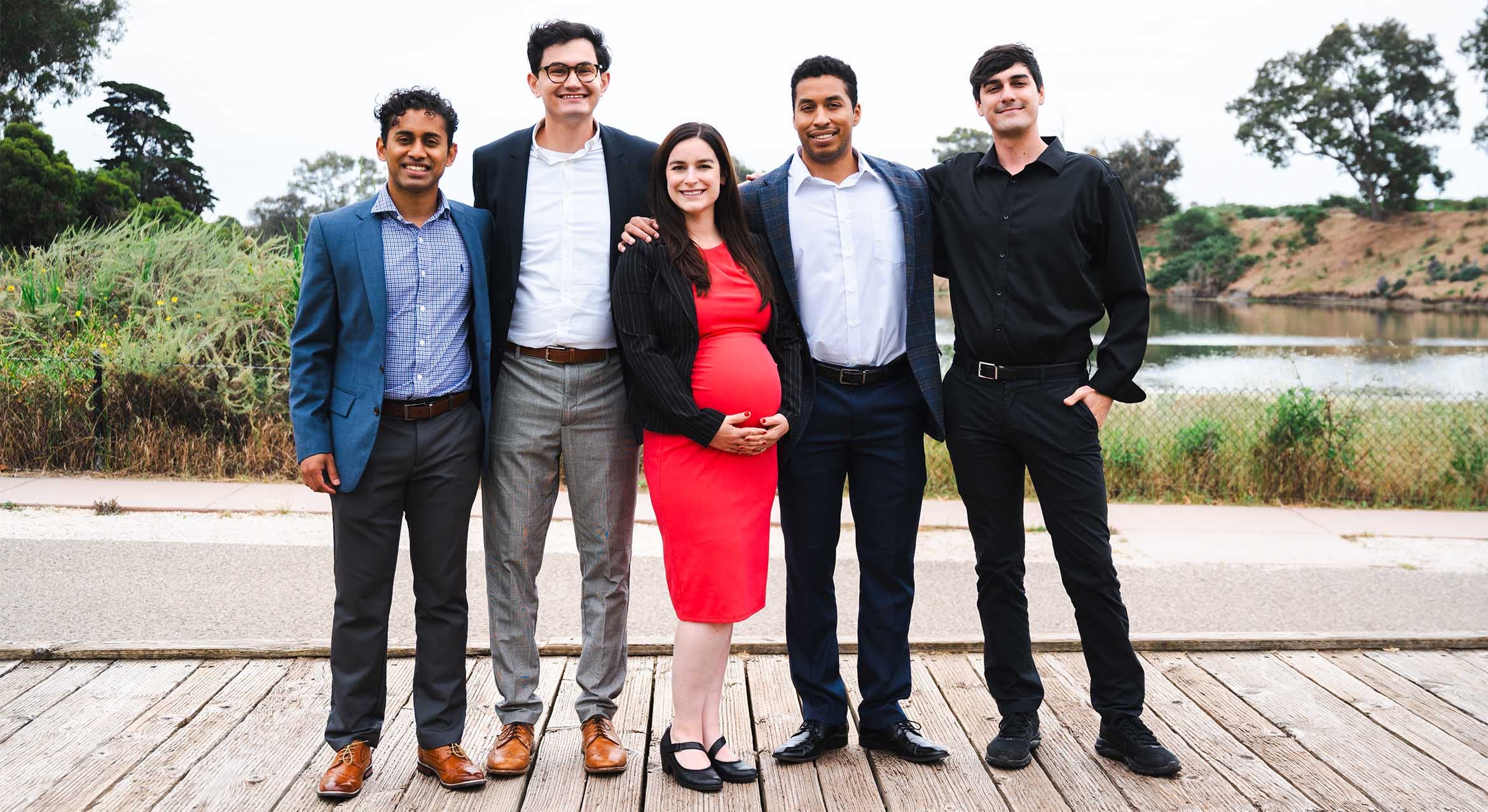That ‘Eureka!’ Moment
Thanks to superbugs, scientists are always on the lookout for new sources of antibiotics. Many come from microbes found in soil, where they have been waging war on one another for eons.
Dirt found at a UC Santa Barbara restoration site has produced three different bacteria, two capable of killing fungal species and one that can kill multidrug-resistant MRSA (methicillin-resistant Staphylococcus aureus). Even more astonishing: The discovery was made by 20 freshmen as part of their work in a new class, Research for Undergraduates - Molecular Biology Experience (RUMBLE).
Offered by the campus’s Department of Molecular, Cellular, and Developmental Biology, the course is part of the BioMentors program, an initiative funded by the Howard Hughes Medical Institute. Sixty percent of all undergraduates who enter college intending to major in science, technology, engineering and mathematics (STEM) do not complete bachelor’s degrees in any of those disciplines. RUMBLE’s curriculum is designed to increase the success and retention of STEM majors by building learning communities that engage students and instructors in a highly interactive environment.
“With RUMBLE, students get the chance to experience for the first time that ‘Eureka!’ feeling scientists fall in love with,” said lecturer Eduardo Gonzalez. “We framed the class around experiences that allow students to have that feeling.”
Rather than work in a prefabricated lab, the instructors collaborated with Rachel Davis, the restoration coordinator at the Cheadle Center for Biodiversity and Ecological Restoration (CCBER), to engage students through discovery-based biology. The freshmen participated in two novel research projects involving several areas of biology, including conservation ecology, molecular biology and microbiology — and contributed to science directly in both projects.
“One of the best parts about RUMBLE was how it was different from the typical lecture or classroom experience,” said student Ashley Diedenhofen. “Instead of being given a lab that’s been done many times before and has a designated outcome, in this class we didn’t know how it was going to turn out. And that was OK; we still learned from the experience.”
The class conducted fieldwork to assess plant and insect species diversity at the San Clemente restoration site, then extracted genomic DNA and performed DNA barcoding. Their specimens were mounted and added to the collection at CCBER.
A second project screened soil at the site for microbial species capable of producing antibiotics. Mike Wilton, also a RUMBLE lecturer, modified the original design of an iChip, a device in which bacteria extracted from soil can be cultured. He fabricated an inexpensive version using pipette tip racks and a semipermeable membrane. Each tip hole forms a miniature chamber that isolates microbes. The iChips were then returned to the soil so the bacteria would “feel at home” and replicate.
“The rationale is that microbes in the soil are always competing with one another, so the soil is a library of natural compounds produced by bacteria,” Wilton explained. “We don’t have to design our own antibiotics; we just need to find a better way to screen the soil for increased antibiotic diversity.”
Participants found the class to be an excellent introduction to both biology and research. “We got to see that many different fields can have real-life applications,” said student Yuan Xie.
Phillip Ahn said that the class’s low-pressure environment made it easier to learn and to work with others. In addition, performing both field and lab work helped some students decide what they liked best.
“I didn’t really like collecting plants, but doing it made me appreciate that it’s hard work and fundamental,” said Sydney Hunt, a biology major in the College of Creative Studies. “But knowing in my freshman year that I’d rather be in a lab is super helpful. Going forward, I know what to focus on.”
Kevin Ruan, who is interested in cell and developmental biology, said: “We know that published research are discoveries made, but we never see the discoveries that aren’t made, the failures. ‘Eureka!’ moments are great; they’re amazing. But I feel that just being able to experience the disappointment of a failed experiment was an equally important learning experience.”






